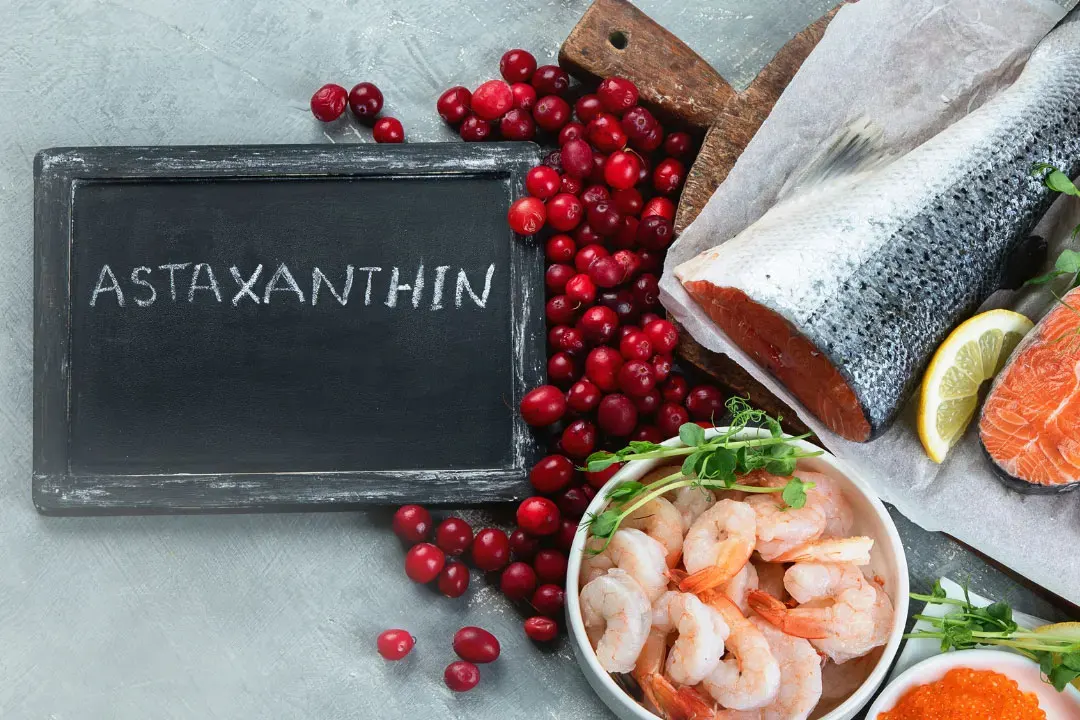Astaxanthin is a powerful antioxidant with impressive benefits ranging from eye health to post-workout recovery. But dietary astaxanthin requires some homework: it’s only found in certain marine sources. Explore the most potent astaxanthin foods with our top seven list so you can take advantage of this extraordinary compound.
Astaxanthin—you may have seen this powerful ingredient in the skincare aisle—but did you know it also has many health benefits when added to your diet? Astaxanthin is a carotenoid found in many foods; it is known for giving foods like salmon their red-orange color.
Astaxanthin is an antioxidant with the potential to enhance brain health, protect the heart, promote skin health, reduce inflammation, boost immunity, improve workout performance, help with male fertility, support eye health, and enhance cognitive function.
Given its multitude of health benefits, this superstar compound is in high demand. There are many ways to incorporate astaxanthin into your daily routine, whether through dietary sources or supplementation. Below we’ll list seven astaxanthin foods you can add to your diet to improve your overall health and suggest a premium supplement you can conveniently add to your daily routine.
You May Also Like:
Healthy Truth’s Organic Go Green Energy Blend Is Our Top Choice of Superfood Powders
Supercharge Your Health With the 7 Best Astaxanthin Foods is an original (HealthXWire) article.
Astaxanthin foods:
Salmon
Salmon is one of the most widely recognized sources of astaxanthin. The powerful antioxidant is what gives salmon its signature color. Studies have shown that fresh salmon contains more astaxanthin than canned or packaged salmon.
Different types of salmon contain different levels of astaxanthin, with Wild Sockeye Salmon being the highest. When choosing salmon for astaxanthin consumption, a great mantra to go by is the redder the hue, the better for you. However, it’s advisable not to consume salmon daily because of the possibility of heavy metals, including mercury. Luckily, many other foods contain astaxanthin.
Astaxanthin foods:
Microalgae
Microalgae stands as another excellent source of astaxanthin. It encompasses a wide range of species, with over 50,000 known variations. Two of the more popular species are chlorella and spirulina. Unlike salmon, spirulina has a blue-green tint. This tiny algae has become a staple in the realm of skincare products.
Spirulina has been shown to improve skin hydration, particularly for mature skin, and is packed with vitamins. Its antioxidant properties make it excellent for fighting free radicals and mitigating signs of aging. On the other hand, chlorella has a bright green hue and has shown promise in managing cholesterol levels and addressing anemia during pregnancy. However, chlorella may cause side effects such as stomach cramps, gas, and diarrhea, so it may not be suitable for those with digestive issues.
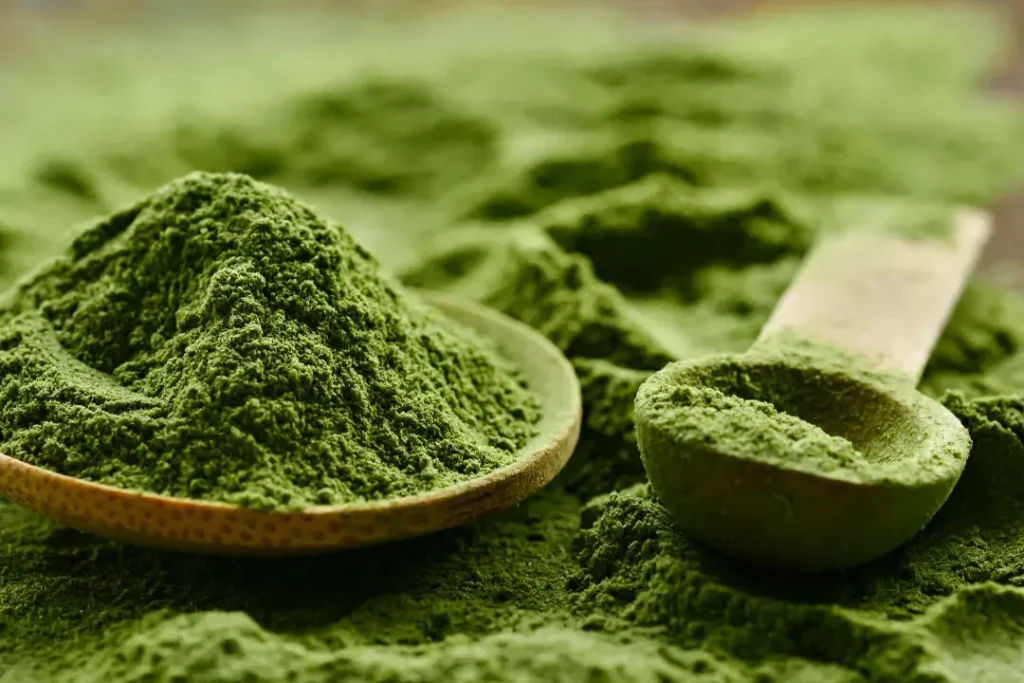
Astaxanthin foods:
Phytoplankton
Phytoplankton, a microscopic organism that floats in the ocean, also contains astaxanthin. Phytoplankton may help combat symptoms of depression, aid in cancer prevention, detoxify the body, boost immunity and liver function, help regenerate cells, and improve heart health. Phytoplankton get their energy from the sun, much like plants. Phytoplankton is available in liquid, powder, or capsule form. Some people may experience healing reactions when taking phytoplankton. These reactions can sometimes resemble adverse side effects, including fatigue, headaches, dizziness, diarrhea, and fever.
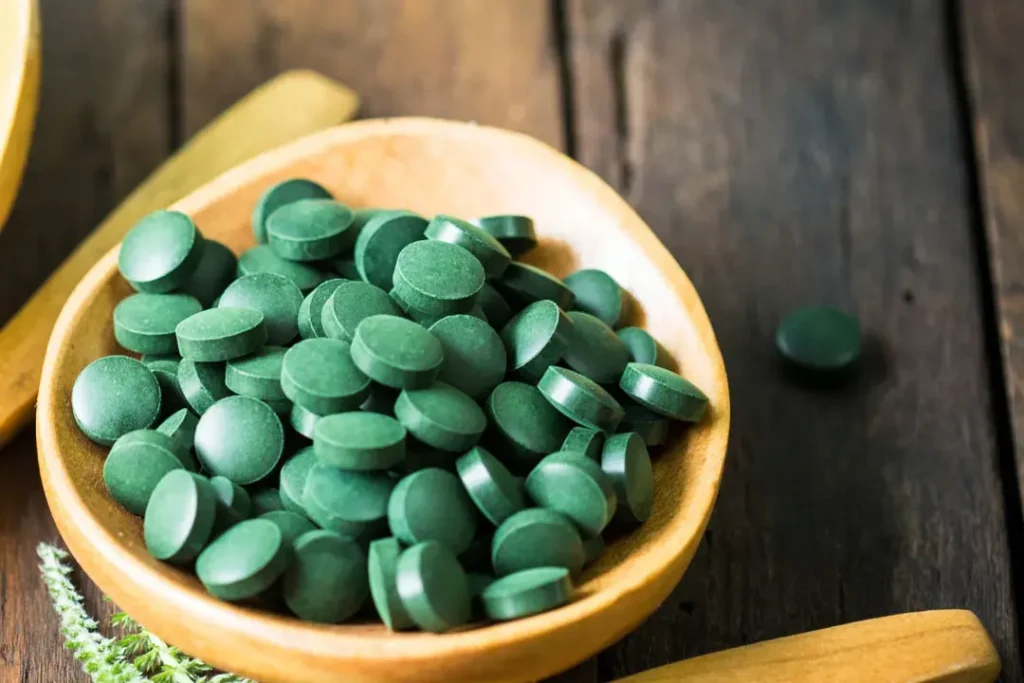

Astaxanthin foods:
Lobster
Lobster gets its vibrant color from astaxanthin. Lobsters do not naturally produce astaxanthin themselves but acquire it by consuming plants. Aside from its high cost, lobster may not be a practical choice for daily consumption due to potential adverse effects. One serving of lobster contains almost an entire day’s allowance of cholesterol. Consuming excessive cholesterol can contribute to the risks of heart disease and stroke. Lobster is also high in sodium, which can elevate blood pressure levels. Ultimately, lobster is best eaten in moderation, so it is not an optimal source for daily astaxanthin intake.
Supercharge Your Health With the 7 Best Astaxanthin Foods is the (HealthXWire) report.
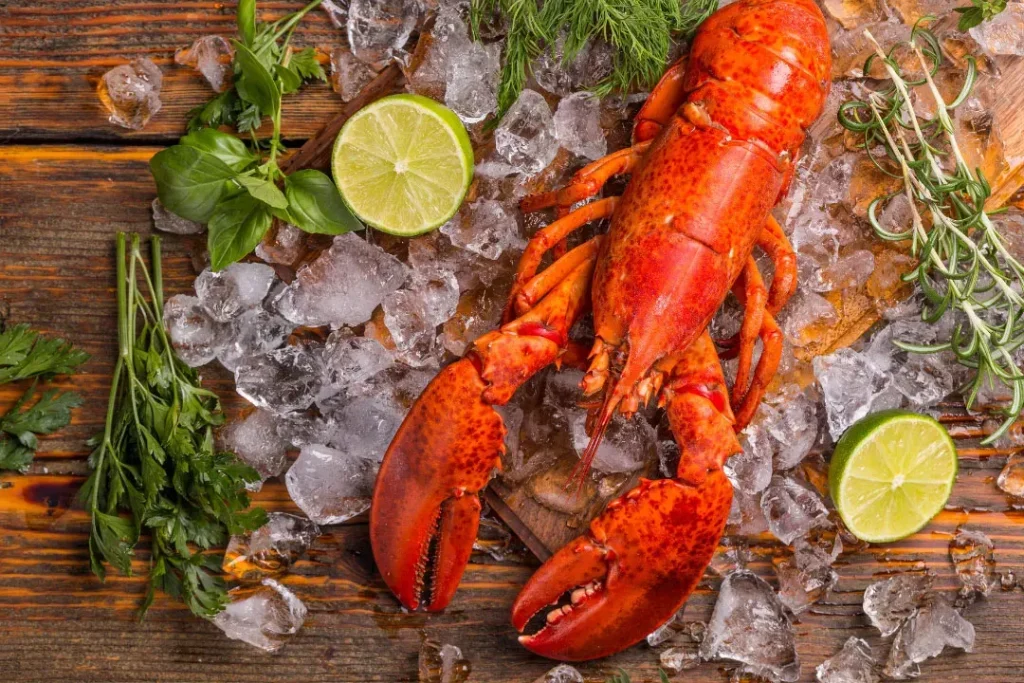

Astaxanthin foods:
Shrimp
Shrimp, much like other astaxanthin foods, acquires its color from astaxanthin. Shrimp also contains selenium, vitamin B12, vitamin D, and copper. While copper is essential for the body, it is possible to have an excess of this mineral. Regularly ingesting excessive amounts of copper can lead to liver damage. Shrimp may also contain heavy metals, which can pose the risk of heavy metal poisoning. For these reasons, it is not practical to eat shrimp every day.
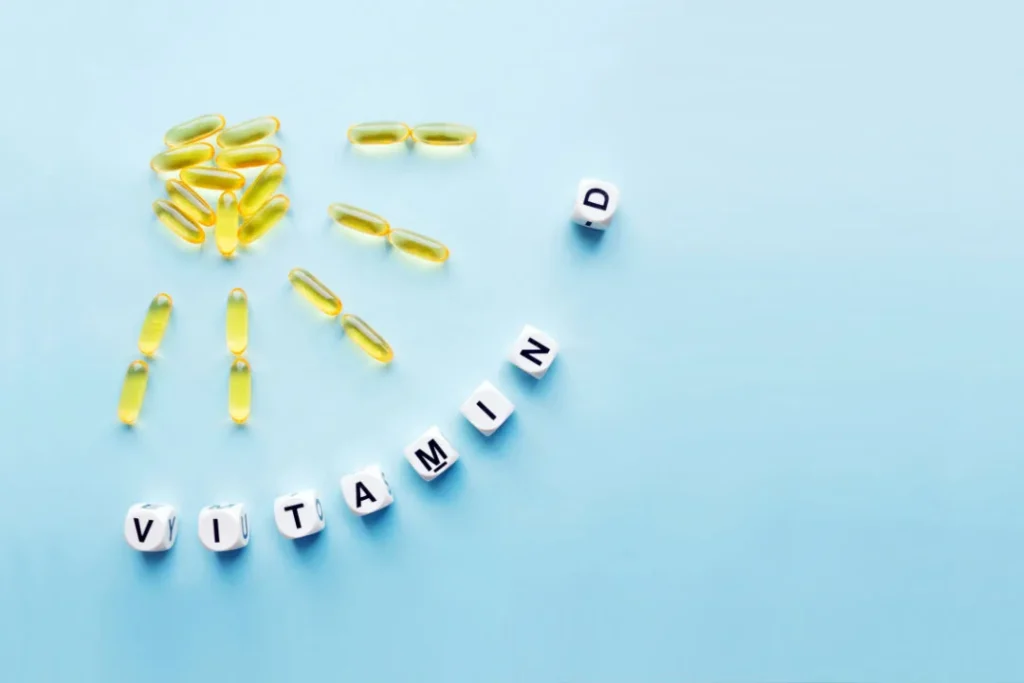

Astaxanthin foods:
Crawfish
Crawfish, a crustacean found in freshwater, such as lakes and rivers, can be a source of astaxanthin. Astaxanthin can be obtained from eating crawfish or extracting it from their waste. It is important to note that a single serving of crawfish contains over one-third of the recommended daily allowance of cholesterol. However, crawfish is low in saturated fat, so it may still suit people with high cholesterol. Crawfish can be a healthy part of your diet when consumed in moderation and prepared correctly. However, the EPA warns of potential risks associated with eating shellfish due to pollution, contaminants, and bacteria.
Astaxanthin foods:
Krill oil
Krill, a small ocean crustacean commonly eaten by penguins and whales, contains astaxanthin along with other healthy ingredients such as DHA and omega-3 fatty acids. While krill oil is similar to fish oil, it is suggested to have higher bioavailability, meaning your body can absorb it better. Krill is also considered less likely to contain heavy metals than other seafood. Due to these advantages, krill oil may be more suitable for daily use than other sources of astaxanthin. However, you should avoid taking krill oil if you are on blood thinners or have shellfish allergies.
Astaxanthin foods can improve your overall health
Finding ways to incorporate astaxanthin into your diet may help improve your overall health. As an antioxidant, astaxanthin helps fight against free radical damage. Free radicals have been linked to a variety of diseases and can cause damage to cells, proteins, and DNA. Astaxanthin has also been proven to combat cardiovascular disease, certain types of cancer, diabetes, liver disease, obesity-related issues, and the aging process of cells. This powerhouse ingredient may help promote vitality and youth. So next time you visit the grocery store, consider selecting astaxanthin-rich foods. Your body will undoubtedly appreciate it.
Further reading:
Life Extension Magazine: New Research on Astaxanthin and Cancer
Drugs.com: Krill oil
National Library of Medicine: Astaxanthin as a Putative Geroprotector: Molecular Basis and Focus on Brain Aging
Important Note: The information contained in this article (Supercharge Your Health With the 7 Best Astaxanthin Foods) is for general informational purposes only, and should not be construed as health or medical advice, nor is it intended to diagnose, prevent, treat, or cure any disease or health condition. Before embarking on any diet, fitness regimen, or program of nutritional supplementation, it is advisable to consult your healthcare professional in order to determine its safety and probable efficacy in terms of your individual state of health.
Regarding Nutritional Supplements Or Other Non-Prescription Health Products: If any nutritional supplements or other non-prescription health products are mentioned in the foregoing article, any claims or statements made about them have not been evaluated by the U.S. Food and Drug Administration, and such nutritional supplements or other health products are not intended to diagnose, treat, cure, or prevent any disease.
Table of Contents

